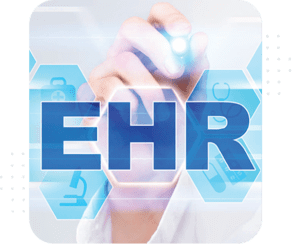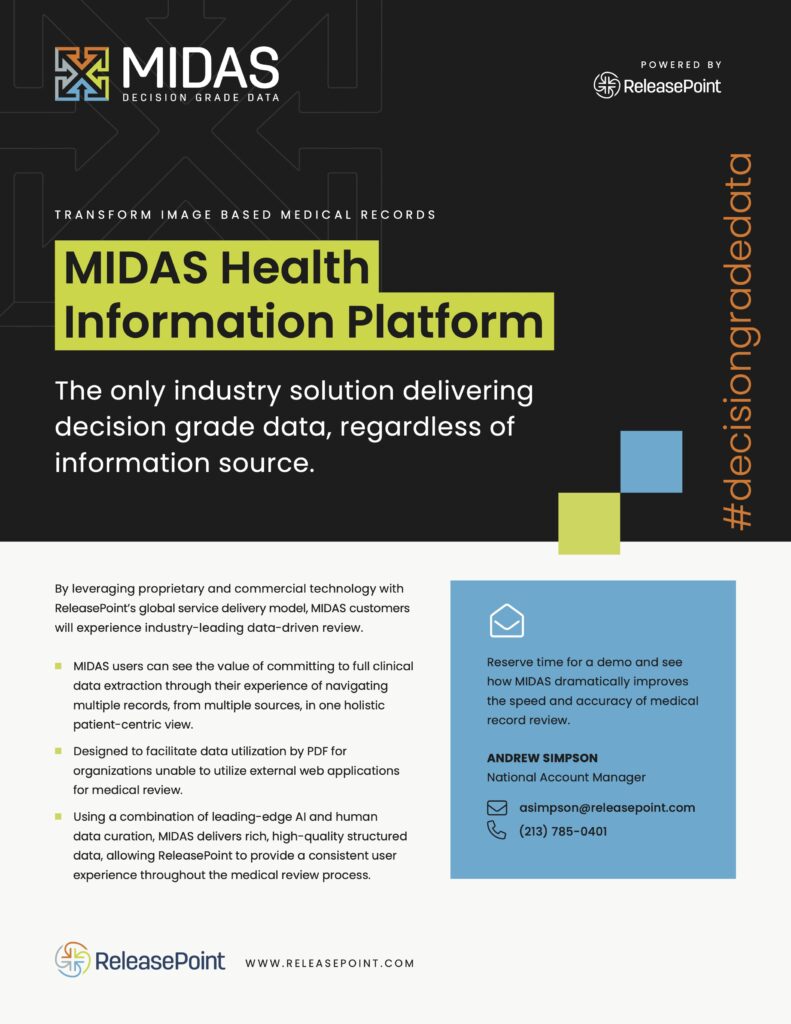A Note from Our CEO
January 28, 2023A Note from Our CEO
January 28, 2023More Companies are Using Electronic Health Records (EHR)
Electronic health records (EHRs) bring a number of benefits to healthcare as well as to many other industries that work with patient information. While most health records today are still sent as traditional, image-based files, data-based EHRs that can be shared more flexibly and quickly are becoming increasingly available, opening up new possibilities for simplifying and streamlining work in many fields of work.
What is an EHR?
Put simply, an electronic health record (EHR) is a patient chart in a data-based format.
Just like a traditional, image-based patient record, an EHR contains details of a patient’s medical history, including their lab results, radiology images, treatment plans, medications, and the like. Traditional patient records, however, come in paper or image-based formats such as PDFs or JPGs. In contrast, EHRs come in data-based formats.
EHRs are used by a growing number of industries today, including the health, legal, and insurance industries. The underwriting and claims departments of life insurance companies in particular are turning to EHRs to speed up their health records reviews processes.
Why are EHRs useful?
Both EHRs and traditional health records contain the same critical information. However, the two have a few key differences:
EHRs have faster retrieval rates. While traditional health records usually take from days to weeks to transmit, EHRs can be transmitted near-instantaneously, at the same speed as email. If the record provider has an automated retrieval process in the backend, the process is even quicker. This speed can dramatically speed up business processes. Underwriting and claims departments, for example, can make much faster decisions on insurance applications, helping to improve services and lowering customer churn rates.
EHRs can reveal multiple records. With traditional records, retrieval requests are specific to one medical facility. With EHRs, however, a search for one individual’s medical history can reveal health records from multiple facilities. For insurance underwriters, this feature of EHRs can be quite advantageous, as it offers a more complete view of the individual’s long-term health history.
Why choose ReleasePoint EHR?
A recognized industry leader in medical records retrieval, ReleasePoint today offers both traditional and EHR retrieval services — with a unique set of advantages:
Switch seamlessly between traditional and electronic records. ReleasePoint makes shifting between traditional records and EHRs a simple process. ReleasePoint can, for example, retrieve EHRs whenever available, but automatically pivot to pulling traditional records in cases where a healthcare organization does not offer digital patient records.
Customize health record searches. Sometimes clients need a patient’s full medical history, while in other instances, only the records from a single healthcare provider are necessary. ReleasePoint can fulfill both types of requests, pulling the record of a unique provider when desired, or compiling the records of multiple providers that come up in a search.
Get a standardized overview of each patient. At no extra cost to clients, ReleasePoint provides with each EHR an at-a-glance top sheet that summarizes key medical information. Called MIDAS Abstract, this ReleasePoint service provides a singular data-based view of a patient’s entire medical record, consolidating information from multiple medical facilities into one easy-to-read digital format. An individual’s change in weight or blood pressure over time, for example, can be quickly seen in a chart that aggregates all relevant data points.
See patient data in a structured format. Because EHRs are data-based, the patient information within them can be more easily parsed, streamlined, organized, and structured as needed. To fully realize this flexibility of EHRs, ReleasePoint offers not only EHR retrieval services but also an EHR data solution which puts patient data into a consistent format.
ReleasePoint’s MIDAS Abstract service can also help minimize human error while improving the privacy and security of patient information through the use of audit trails and digital encryption. Not sure whether traditional or EHR retrieval services are the right choice for your organization? Get in touch with us for an assessment and custom recommendation that best meets your needs.



